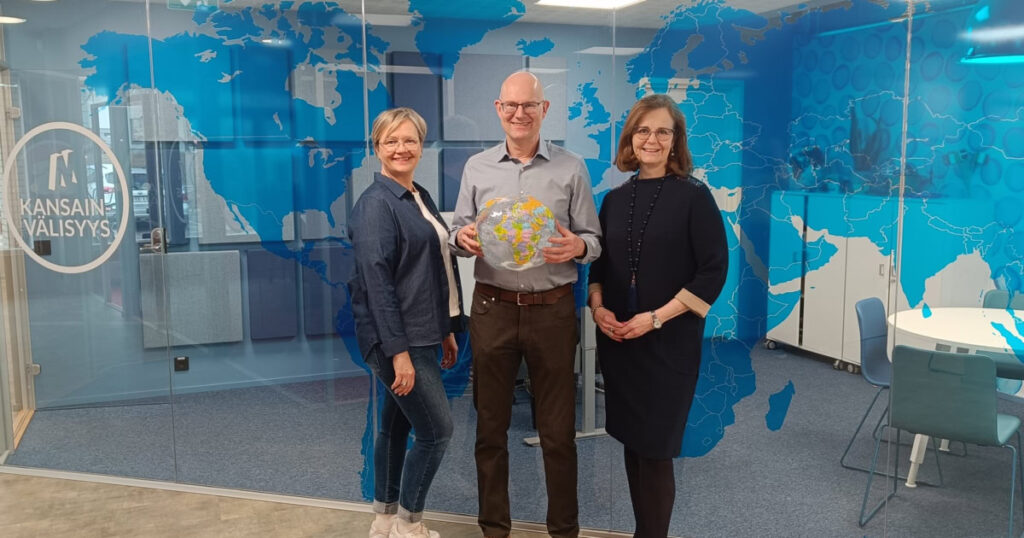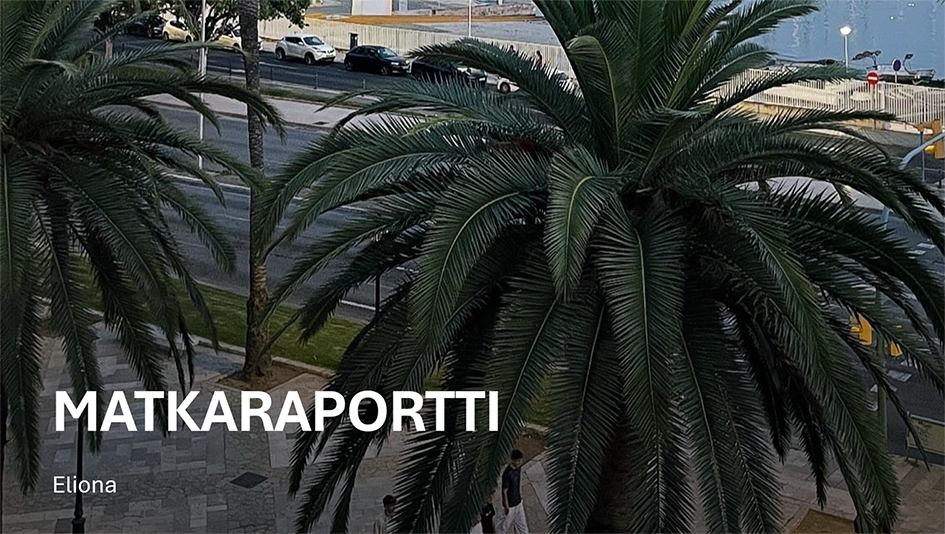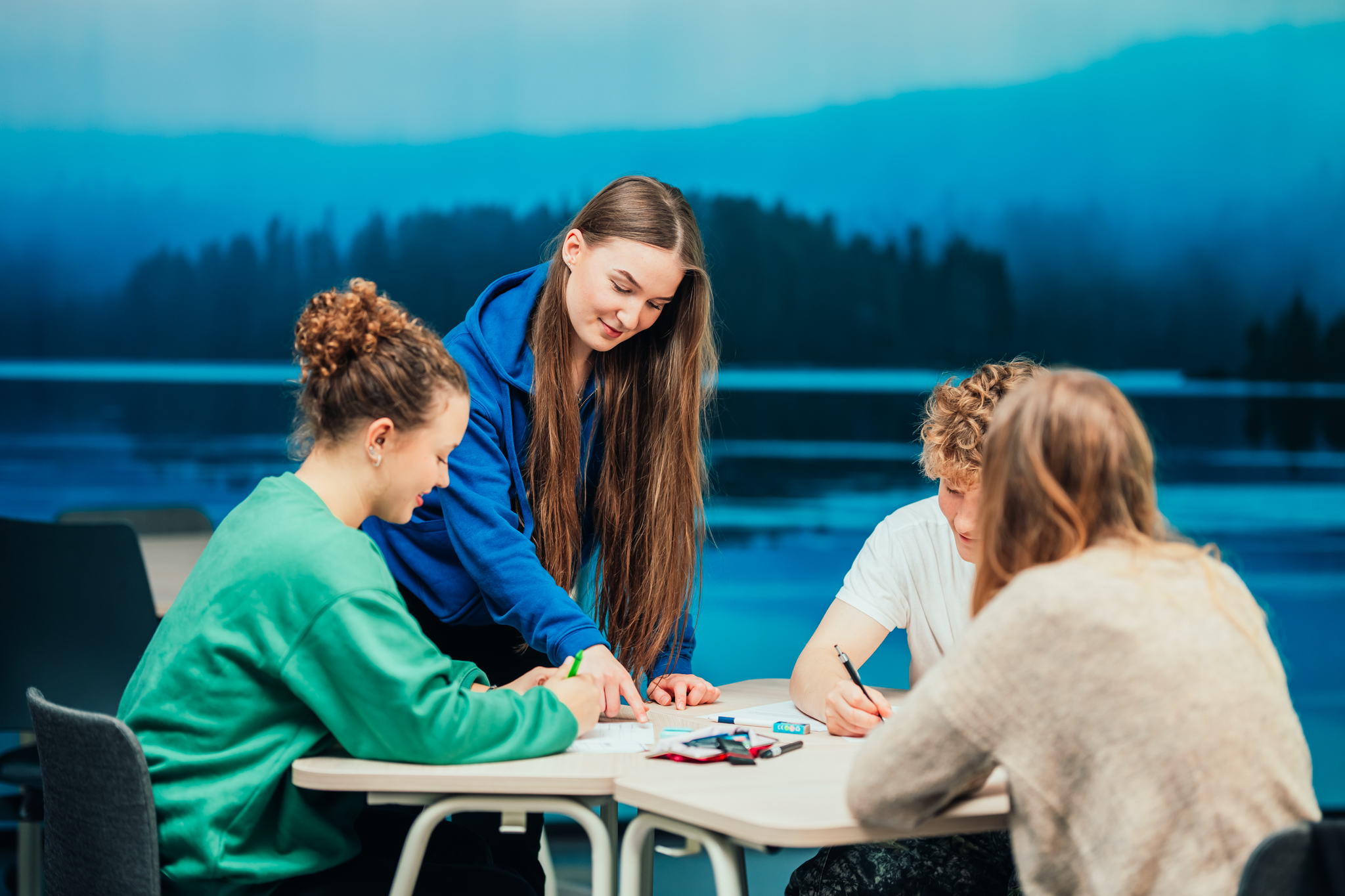Text | Finnish Education Employers (FEE) 16th Apr 2025
Mercuria is a vocational college for business education located in Martinlaakso, Vantaa, where internationalization plays a significant strategic role. Mercuria encourages each student to internationalize in a way that suits them the best. The programs of the European Union are excellent ways to achieve internationalization. We interviewed Principal and CEO Tiina Immonen and Vice Principal Markus Oedewald, who is in charge of Mercuria’s international activities, including EU projects.
What different programs of the EU is Mercuria involved in?
Markus: Primarily, we are involved in projects funded by the Erasmus+ program, which focus on both mobility and strategic partnerships. Mobility relates either to student mobility, such as internships abroad and study trips, or staff mobility (e.g., teachers visiting to assess exhibitions). In strategic partnership projects, we develop various aspects of learning.
Tiina: It is great that we have received accreditation, which means we do not have to apply for new funding every year. Previously, we managed international mobility purely with our own funding. With accreditation, we receive funding from EU programs for international activities.
Markus: The funding we receive enables approximately 50 students to do internships abroad each year. We can genuinely offer this opportunity to every student. As long as one manages their studies well, they can get the chance to complete an internship abroad.
Tiina: Internationalization has always been a focus at Mercuria. Since 1974, we have had a foreign trade program, one of the first in Finland. In addition to EU projects, we are involved in various networks such as EFVET (European Forum of Technical and Vocational Education and Training), which is a good way to find partners for EU projects at the events they organize.
Markus: Nowadays, we often act as coordinators of EU projects, meaning we take responsibility for implementation. This way, we can choose which focus area to concentrate on. Project activities are much more strategy-driven. For example, from 2017 to 2019, we coordinated the Young Talents project.
What are the biggest benefits of EU programs for you, and why are you involved in them?
Tiina: Through them, we gain networks, develop our own operations, and, of course, receive funding. Projects must be thought of more strategically, and the content must be strongly integrated. For example, in the Young Talents project, we wanted to develop an entrepreneurship path and its pedagogical model. As a result of the project, the entrepreneurship path became part of Mercuria’s operations. One important goal of the Erasmus program is for the project to have a lasting impact.
Markus: Our success is demonstrated by the fact that the European Commission awarded our Young Talents entrepreneurship project the European Innovative Teaching Award as the best Finnish Erasmus+ project in vocational education.
Tiina: Through EU projects, young people gain valuable experience in how things are done in other countries. Many students who have completed internships abroad learn to appreciate their own country and its educational opportunities in a new way. Additionally, international activities bring Mercuria a good reputation. Students apply to us to pursue double degrees specifically because of the internationalization aspect.
Markus: With a strong partnership network (from Europe, such as Spain and the Netherlands, and from farther away, such as Thailand), we have implemented successful projects. For example, we collaborated with Finnish, Dutch, and Spanish business and artisan students to establish companies and create products that were marketed and sold both in shopping centers and student-established online stores.
Tiina: And now we have fresh experience from the Business Ambulance project, which involves other countries like Germany and Thailand. Students from various countries formed groups that created social media campaigns for SMEs in each participating country. From this project, we also adopted a permanent practice: social media content production became a local qualification module at Mercuria.
Finally, both of the Principals want to give positive feedback to the international unit of the Finnish National Agency for Education (formerly known as CIMO before its merger with the Finnish National Agency for Education). The praise is aimed at the excellent project management and the exemplary handling of fund distribution. Additionally, Mercuria has received development ideas during the feedback phase of project final reports, which have been very beneficial for its operational development. The international activities of the Finnish National Agency for Education support Mercuria’s EU activities and internationalization strategy in a wonderful way.
According to recent statistics from the Finnish National Agency for Education, student mobility in vocational education is still on the rise, with a record share of mobility supported by the Erasmus+ program. However, overall mobility has not yet reached the pre-pandemic levels.
Read the article here: https://www.sivista.fi/uutiset/mercuria-kehittaa-ammatillista-koulutusta-eu-yhteistyon-avulla-kansainvalinen-hanketoiminta-tukee-strategiaa/




